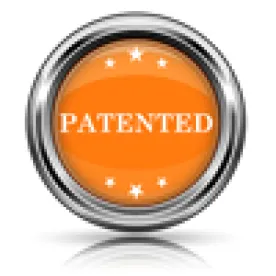Addressing the scope of its discretion to institute or deny a petition under 35 USC §§ 314(a) and 325(d), the Patent Trial and Appeal Board (PTAB) designated as precedential two recent decisions denying institution of inter partes review (IPR) petitions. Valve Corp. v. Elec. Scripting Prods., Inc., Case Nos. IPR2019-00062, -00063, -00084 (PTAB Apr. 2, 2019) (Weinschenk, APJ); NHK Spring Co., Ltd. v. Intri-Plex Techs., Inc., Case No. IPR2018-00752 (PTAB Sept. 12 2018) (Ankenbrand, APJ). In Valve Corp., the PTAB held that its multi-factor General Plastic analysis under § 325(d) can take into account earlier-filed petitions by anyone, not just the “same petitioner.” In NHK Spring, the PTAB held that any number of factors, separate and apart from those considered under § 325(d), can be considered when exercising its discretion to institute or deny a petition under § 314(a).
In Valve Corp., Valve Corp. was a co-defendant in a district court case with HTC. HTC had filed earlier petitions challenging the same claims of the same patents using the same combinations of prior art. Because of venue issues associated with the district court case, Valve had additional time, as compared to HTC, to file within the one-year time limit under § 315(b). As a result, Valve did not file its petitions until after the PTAB denied institution on HTC’s petitions.
When weighing the General Plastic factors and considering “whether the same petitioner previously filed a petition directed to the same claims of the same patent,” the PTAB determined that when different petitioners challenge the same patent, it considers any relationship between those petitioners in its General Plastic analysis. Valve argued that the PTAB should not factor HTC’s petitions into the analysis because it was an unrelated company that at most shared a common desire to invalidate the patents. The PTAB disagreed, finding a close relationship between HTC and Valve (1) as co-defendants and (2) because the products accused of infringement included technology licensed from Valve to HTC. Moreover, the overlap of challenged claims, grounds of invalidity and expert declarations favored denying institution. The PTAB therefore took into account HTC’s earlier-filed petitions when weighing the factors, and it determined that the factors weighed in favor of denying institution.
In NHK Spring, the PTAB weighed the General Plastic factors and determined that the examiner’s prior rejections over similar art and the petition’s failure to identify errors, present new art and make new arguments, as compared to the examiner, weighed in favor of denying institution. Even after this finding, the PTAB went further to consider whether other factors warranted using its discretion to deny institution under § 314(a). Patent owner argued that the petitioner knew about the challenged patent for more than 10 years but waited unusually long to seek review. The PTAB found this did not weigh in favor of denying institution, because it created an opportunity for tactical advantage. Patent owner also argued that the parallel district court case would make the IPR redundant because that case had not been stayed and was scheduled to go to trial before the IPR proceeding would have concluded. The PTAB found that it would have been an inefficient use of the PTAB’s resources to institute an IPR when the district court would have resolved the issues long before the PTAB would reach them. Accordingly, the PTAB found that this factor weighed in favor of denying institution.



 />i
/>i

